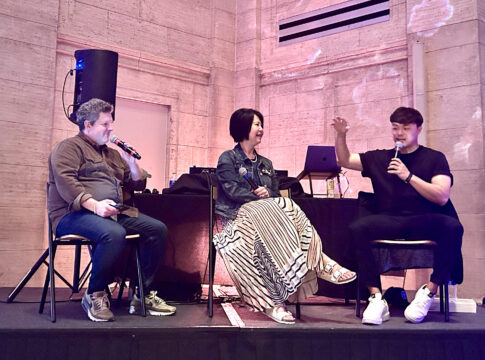By Akemi Tamanaha, Associate Editor
Photographer Jarod Lew grew up in a mostly white suburb outside of Detroit and spent years feeling like he didn’t have an Asian American community. Little did he know he had a connection to one of the most significant stories in Asian American history.
Lew’s mother was the fiance of Vincent Chin, the man who was violently killed the night of his bachelor party by two white men who wrongly believed he was a Japanese factory worker who had stolen their jobs. Lew didn’t know about his mother’s connection to Chin until 2012.
“I think families… if there’s like a pact to keep something secret. It’s you know, it’s, they’re pretty good at it, I think. Especially for the children,” Lew said during a recent conversation with Helen Zia hosted by CAAMFest at the SFMOMA.
Zia is a legendary Asian American journalist who has used her work to help push for justice for Vincent Chin. She spoke with Lew about his mother and his work.
LATEST STORIES
Lew is known for his work photographing Detroit as the city evolved in the mid-2010s, becoming incredibly gentrified in some areas and impoverished in other areas. The city’s economic turmoil made it a popular destination for photojournalists. Lew wanted to offer a perspective from someone who grew up around Detroit.
“I just wanted to I just wanted to hear the stories and capture or like think about these, like, very dramatic scenes that that that you don’t see on the news when new Detroit was becoming a thing you know, it was all about this gentrification of this bubble that’s in downtown Detroit,” Lew told Zia. “Right, how great is Detroit? And, you know, but then there was this other world that was being overlooked.”
Unlike many photojournalists, Lew describes his process as “making” photographs.
“When I see something I just ask if I can make a photograph. Nothing’s ever forced or a surprise,” he said, adding, “… Whereas I think maybe photojournalism there’s no sort of distinction between a staged picture and, you know, the other…”
After learning about his mother’s connection to Vincent Chin, Lew began to use photography to examine his own relationship with the Asian American community.
“I started revisiting that history, because I felt like I had more confidence to explore something more complex to myself, and about myself,” he said.
His most recent project Please Take off Your Shoes examines the relationship second generation Asian Americans have with their immigrant parents and their upbringing in America. In the titular photograph, Lew recreated a memory of guests taking off their shoes before entering an Asian American home for a party or gathering.
“I don’t try to explain too much to the audience that’s looking at the picture, because it’s, it’s really about the memories that people have when looking at these photographs, I want them to really interact with it in a way where it triggers them into thinking about their own childhood experience in their parental home or in home in general,” he said.
Although Lew cites his mother’s connection to Vincent Chin as an inspiration, he is careful to respect her wish for privacy. Photos of Vickie have been included in journals, articles and exhibits about Vincent’s murder, but she has never spoken to the media.
“I’ve wondered over the years, is this something that we are doing that is hurtful to your mother?” Zia said to Lew. “ And there has been no way for me to know that. So? I just, you know, and I’ve always hoped that it wasn’t.”
Lew said his mother stays away from the public eye as a way to survive, but she is proud of the work her son is doing.
“My mom is happy with the fact that I’m making work as about my community,” he said.
AsAmNews is published by the non-profit, Asian American Media Inc. Follow us on Facebook, X, Instagram, TikTok and YouTube. Please consider making a tax-deductible donation to support our efforts to produce diverse content about the AAPI communities. We are supported in part by funding provided by the State of California, administered by the California State Library in partnership with the California Department of Social Services and the California Commission on Asian and Pacific Islander American Affairs as part of the Stop the Hate program. To report a hate incident or hate crime and get support, go to CA vs Hate.








